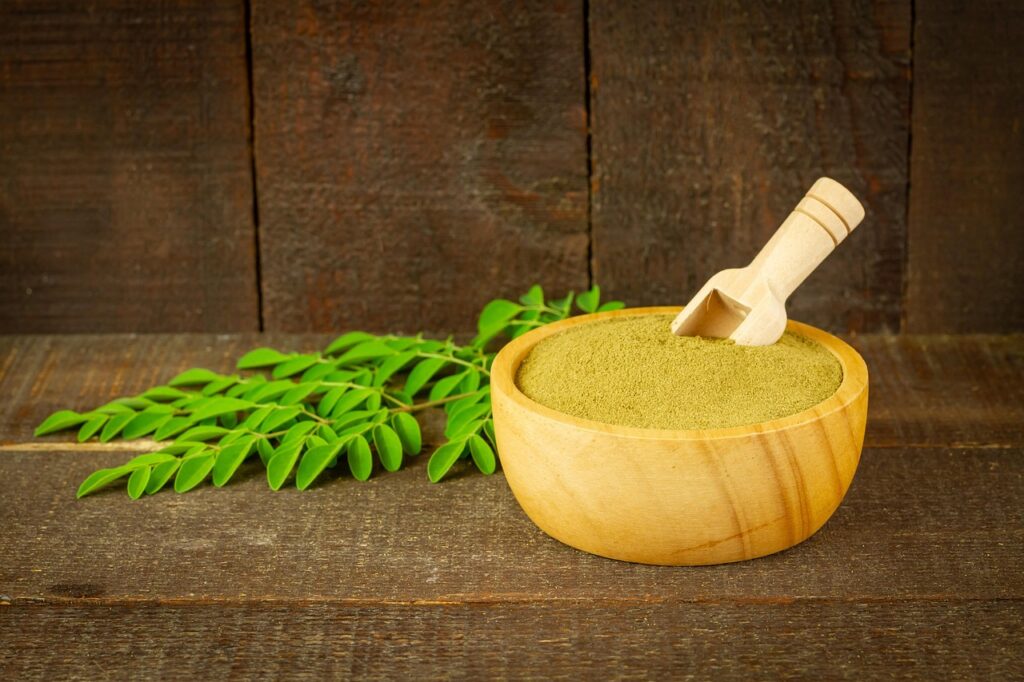Moringa and its role in improving anaemia

- Moringa oleifera, also known as the drumstick tree, is a fast-growing tree native to the Indian subcontinent. It is now widely cultivated in tropical and subtropical regions around the world. Moringa is a nutrient-rich plant used in traditional medicine for a variety of conditions.
- One of the potential benefits of moringa is its ability to treat anaemia. Anaemia is a condition in which the body does not have enough healthy red blood cells. Red blood cells carry oxygen to the body’s tissues, so when there are not enough red blood cells, the tissues do not get enough oxygen. This can lead to various symptoms, including fatigue, shortness of breath, and pale skin.
- Moringa is a good source of iron, which is an essential mineral for the production of red blood cells. It also contains other nutrients that are important for blood health, such as vitamin C, vitamin A, and folate. In addition to these nutrients, moringa also contains other nutrients that are important for blood health, such as potassium, magnesium, and calcium. These nutrients help the body to absorb iron and produce healthy red blood cells.
- Vitamin C is a water-soluble vitamin that is essential for the production of collagen, a protein that helps to keep blood vessels healthy.
- Vitamin C also helps the body to absorb iron, which is an essential mineral for the production of red blood cells.
- Vitamin A is needed for the production of red blood cells. It helps to regulate the production of bone marrow, which is where red blood cells are made and helps to protect red blood cells from damage.
- Folate is a B vitamin that is important for cell growth and development. Folate is also essential for the production of red blood cells.
- Potassium helps to regulate blood pressure.
- Calcium is important for the production of red blood cells because it is involved in producing haemoglobin, besides providing energy for the production of red blood cells.
- Magnesium helps to relax blood vessels.
- Here are some ways to incorporate moringa into your diet:
- Add moringa powder to smoothies, soups, or stews.
- Make moringa tea by steeping moringa leaves in hot water.
- Sprinkle moringa flakes on cereal or yoghurt.
- Eat moringa leaves raw or cooked.
